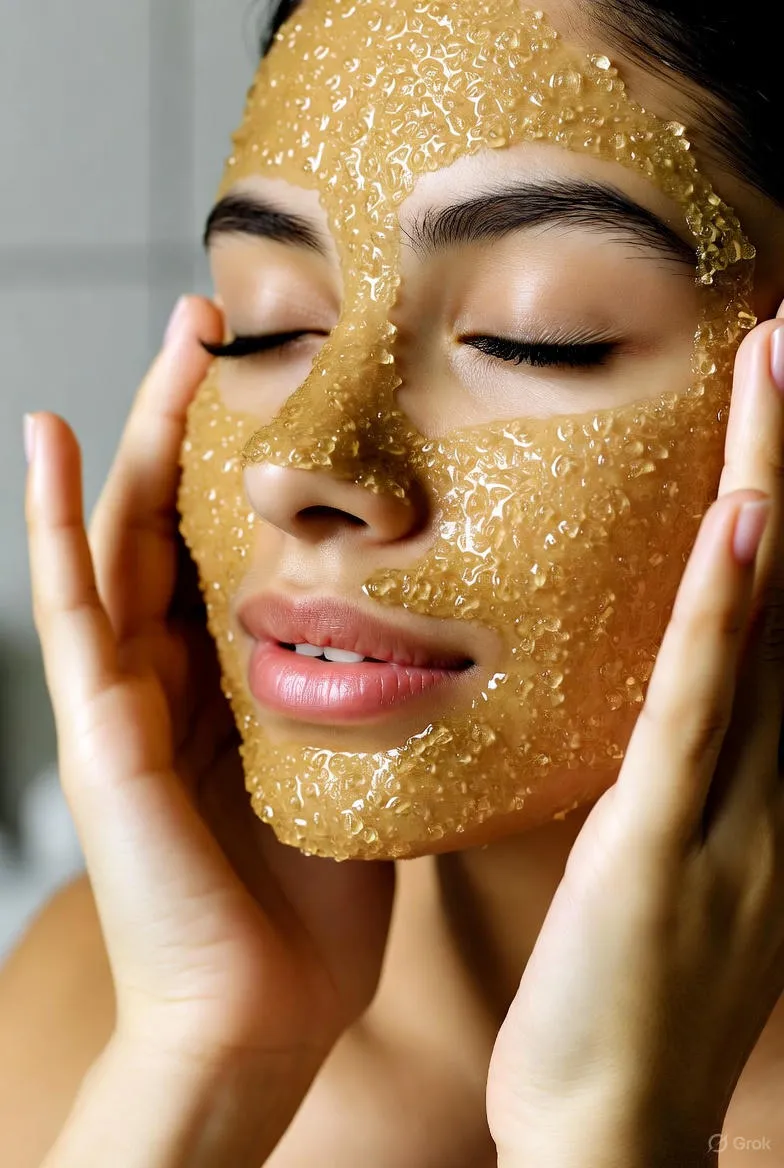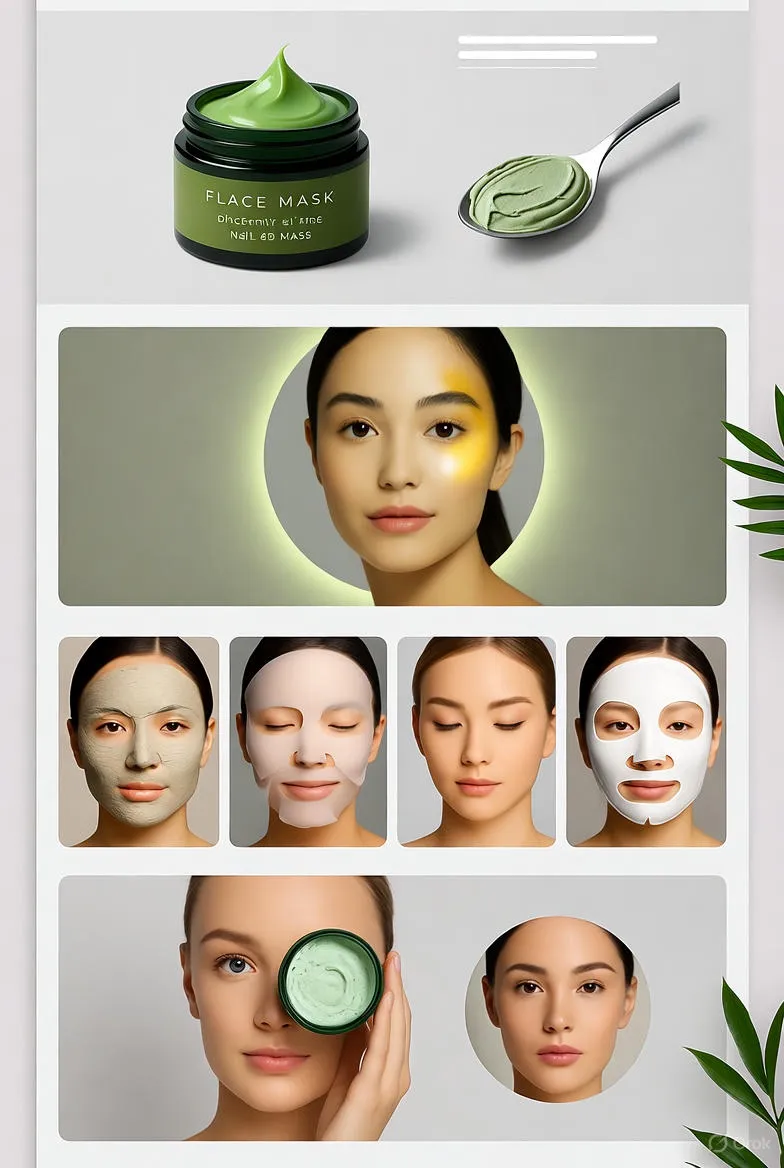Unlock Radiant Skin: The Ultimate Guide to Charcoal Face Masks for Deep Cleansing
Discover the transformative power of charcoal face masks for deep cleansing. Explore benefits, how-to guides, DIY recipes, and tips for radiant, detoxified skin in this ultimate skincare guide.

Introduction to Charcoal Face Masks
In the ever-evolving world of skincare, where trends come and go like seasonal blooms, charcoal face masks have carved out a permanent spot on bathroom shelves worldwide. These unassuming black concoctions promise more than just a dramatic Instagram-worthy peel-off; they deliver genuine deep cleansing that leaves skin feeling refreshed, balanced, and invigorated. But what exactly makes activated charcoal such a powerhouse in the realm of facial treatments? Let's dive into the science, benefits, and practical tips for incorporating charcoal face masks into your routine.
The Science Behind Charcoal's Cleansing Magic
Activated charcoal, the star ingredient in these masks, isn't your average barbecue fuel. It's a highly porous form of carbon that's been treated to increase its surface area exponentially—think millions of tiny pores per gram. This unique structure allows it to act like a magnet for impurities, drawing out toxins, excess oil, and environmental pollutants that clog pores and dull the complexion.
During application, the charcoal binds to these unwanted elements through a process called adsorption (not to be confused with absorption). As the mask dries, it pulls deeper into the skin's surface, extracting dirt and bacteria that regular cleansers might miss. Once rinsed off, you're left with cleaner pores and a smoother texture. Studies, including those published in dermatological journals, highlight charcoal's antibacterial properties, making it particularly effective against acne-causing microbes.
Why Deep Cleansing Matters
Daily life exposes our skin to a barrage of aggressors: urban pollution, makeup residue, sweat, and sebum buildup. Without periodic deep cleansing, these accumulate, leading to enlarged pores, blackheads, and uneven tone. Charcoal face masks address this at the root, promoting a clearer canvas for other skincare actives like serums and moisturizers to penetrate effectively.
Key Benefits of Charcoal Face Masks
Beyond the basics, charcoal masks offer a symphony of skin-loving perks. Here's a closer look:
- Oil Control: Ideal for oily or combination skin types, charcoal absorbs excess sebum without stripping the skin's natural moisture barrier, preventing that dreaded rebound oiliness.
- Pore Minimization: By clearing out debris, it helps pores appear smaller over time, giving the face a refined, airbrushed finish.
- Detoxification: In a world laden with heavy metals and chemicals, charcoal's detoxifying prowess neutralizes these, fostering a healthier skin environment.
- Brightening Effect: Regular use can fade hyperpigmentation and reveal a more luminous glow, as dead skin cells and impurities are sloughed away.
- Anti-Inflammatory Action: Its soothing qualities calm redness and irritation, making it a gentle choice even for sensitive skin when formulated properly.
Users often report a "glass skin" vibe post-treatment—smooth, dewy, and ready for flawless makeup application. For those battling occasional breakouts, the mask's ability to unclog follicles can reduce inflammation and prevent future pimples.
How to Choose the Right Charcoal Face Mask
Not all charcoal masks are created equal. With shelves groaning under peel-off gels, clay hybrids, and sheet versions, selection can feel overwhelming. Start by assessing your skin type: Oily skins thrive with kaolin clay-infused options for added mattifying power, while dry or mature skins benefit from hydrating additions like hyaluronic acid or aloe vera.
Look for masks with 100% natural activated charcoal sourced from sustainable bamboo or coconut shells—avoid synthetic fillers. Certifications like cruelty-free or vegan are bonuses. Popular formulations include those blended with tea tree oil for acne-prone skin or green tea for antioxidant boosts. Always patch-test new products to sidestep allergic reactions.
Top Ingredients to Pair with Charcoal
To amplify efficacy, seek masks combining charcoal with complementary heroes:
- Bentonite Clay: Enhances drawing out toxins for a double-detox punch.
- Salicylic Acid: Gently exfoliates inside pores, tackling blackheads head-on.
- Honey: Provides antibacterial humectancy, balancing the drying effect.
- Vitamin C: Brightens and evens tone for an all-around radiance ritual.
These synergies turn a simple mask into a targeted treatment, addressing multiple concerns in one go.
Step-by-Step Guide to Using Charcoal Face Masks
Incorporating a charcoal mask is straightforward, but technique matters for optimal results. Follow this ritual for a spa-like experience at home:
- Prep Your Skin: Begin with a gentle cleanse using a foaming or micellar water to remove surface grime. Steaming your face for 5 minutes opens pores, enhancing absorption.
- Apply Evenly: Using clean fingers or a brush, spread a thin layer over the T-zone and cheeks, avoiding the delicate eye and lip areas. Aim for 1-2 times weekly to prevent over-drying.
- Drying Time: Let it set for 10-15 minutes until it firms up but doesn't crack—think firm handshake, not brittle cookie.
- Rinse Gently: Use lukewarm water and a soft cloth to massage off in circular motions, revealing the "aha" moment of clean skin.
- Follow Up: Seal in the benefits with a toner, serum, and moisturizer. A weekly mask night can become your self-care anchor.
For peel-off varieties, grip an edge and slowly pull upward from chin to forehead, like unveiling a masterpiece. This method provides instant gratification with visible gunk removal.
DIY Charcoal Face Mask Recipes for Home Spa Enthusiasts
Why splurge when you can whip up bespoke masks from pantry staples? These recipes are cost-effective, customizable, and free from preservatives—perfect for eco-conscious routines.
Basic Detox Mask
Ingredients: 1 tsp activated charcoal powder, 1 tbsp bentonite clay, 2 tbsp water or rosewater.
Method: Mix into a paste, apply, and rinse after 10 minutes. This minimalist version is great for beginners, delivering straightforward deep clean.
Acne-Fighting Blend
Ingredients: 1 tsp charcoal, 1 tbsp yogurt, 1 tsp honey, 2-3 drops tea tree oil.
Method: Combine until smooth, slather on, and enjoy the probiotic calm alongside antibacterial zing. Yogurt's lactic acid gently exfoliates for smoother texture.
Hydrating Charcoal Mask
Ingredients: 1 tsp charcoal, 1 tbsp avocado or coconut oil, 1 tbsp aloe vera gel.
Method: Blend and apply; it's nourishing for dry skins, countering charcoal's pull with fatty acids and soothing gel.
Store extras in airtight jars in the fridge for up to a week. Always use fresh, cosmetic-grade charcoal to avoid impurities.
Potential Drawbacks and Precautions
While charcoal masks are generally safe, they're not without caveats. Overuse can disrupt the skin's microbiome, leading to dryness or sensitivity—limit to twice weekly. Those with very dry or eczema-prone skin should opt for creamier formulas to maintain hydration.
During pregnancy, consult a doctor, as charcoal might interfere with oral medications if ingested accidentally. Never apply to broken skin, and always follow with sunscreen, as exfoliation increases sun sensitivity.
If irritation occurs, discontinue and soothe with a gentle oatmeal bath. Dermatologists emphasize balance: Charcoal is a tool, not a daily driver.
Real-Life Transformations and Expert Insights
Anecdotes abound from users who've swapped congested complexions for confident glows. One reviewer shared how weekly charcoal sessions banished her stubborn forehead blackheads after months of futile scrubs. Experts like estheticians recommend it as a pre-event prep, ensuring makeup adheres flawlessly.
In clinical settings, charcoal masks feature in facials for their non-invasive detox. Pairing with LED light therapy or microdermabrasion elevates results, but home use suffices for maintenance.
Sustainable Sourcing and Future Trends
As sustainability surges, brands are innovating with upcycled charcoal from agricultural waste, reducing environmental footprints. Look for refillable packaging to minimize waste. Emerging trends include charcoal-infused microneedling patches and smart masks with app-tracked drying times—technology meets tradition.
Incorporating global rituals, like Korean sheet masks with charcoal essence, broadens appeal, blending East-West wisdom for holistic care.
Conclusion: Embrace the Black for Brighter Days
Charcoal face masks aren't just a fad; they're a timeless ally in the quest for deep-cleansed, radiant skin. From science-backed adsorption to DIY delights, they empower us to reclaim clarity amid chaos. Whether you're a skincare novice or aficionado, adding this ritual could be the game-changer your routine craves. Glow on, one mask at a time.
(Word count: 1,248)


